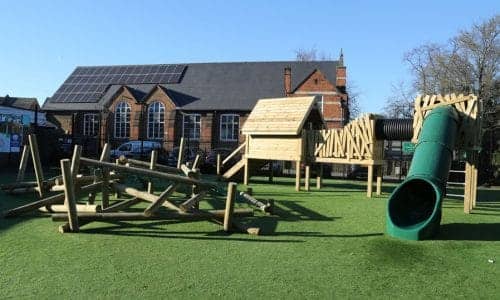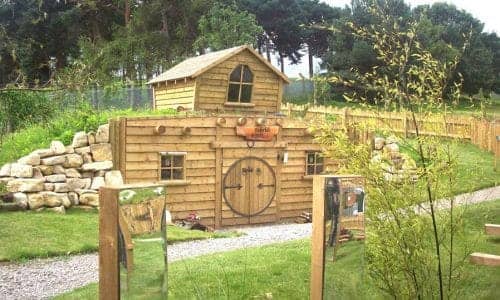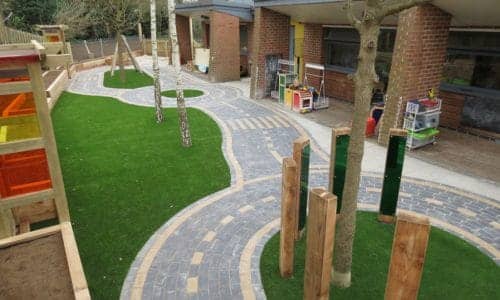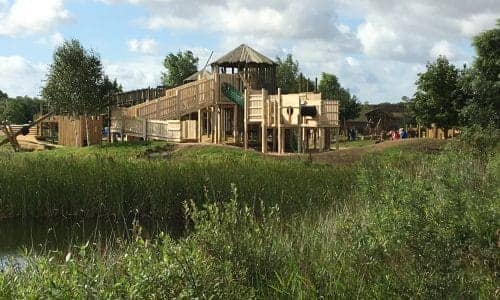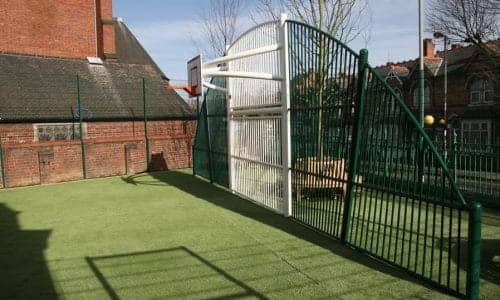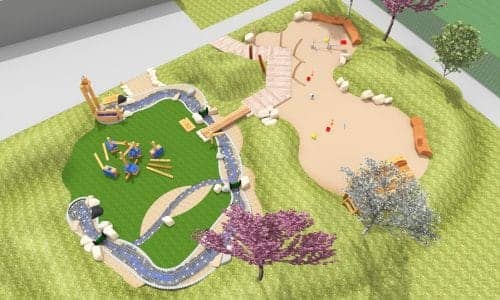Designing and creating outdoor learning and play spaces, which is accessible by all is crucial within any setting but particularly within a SEND setting.
Sensory playgrounds and sensory gardens are particularly beneficial to children with sensory processing issues, such as autism and other disabilities. There has been a growing trend to include sensory gardens and sensory spaces in schools and children’s hospitals. It has also been shown to help with anxiety, fidgeting and attention disorders such as ADHD.
Studies show that sensory gardens teach non-verbal children how to participate in a cooperative effort and it helps develop their non-verbal communication skills. Timotay Playscapes, sensory gardens and sensory outdoor spaces create spaces that are accessible to children with all kinds of disabilities, including those who are in wheelchairs.
Sensory play is any form of play that stimulates the five senses and encourages sensory exploration. It is the exploration of the world through any of the 5 senses: touch; smell; sight; hearing and taste.
Anything that provides a child with stimulation for their senses, whether focusing on one sense or several and the chance to explore those things in their own way, can be considered sensory play.
Sensory playgrounds improve physical fitness, health, mood and cognition. Gardening and plant care help children develop gross and fine motor skills. Time outdoors, breathing fresh air, and being exposed to sunlight is extremely beneficial to the children’s overall physical health.
Sensory gardens have many therapeutic benefits. They help children develop important life skills including emotional regulation and self-reliance. Sensory Gardens and Sensory Spaces creates an opportunity for children to experience textures, tastes and sounds they may otherwise not be exposed to – and this type of sensory stimulation is critical to healthy brain development.
Children with sensory processing issues such as autism particularly benefit from sensory gardens.
Benefits of Sensory Play
- Brain Development: Sensory play builds nerve connections within the developing brain’s neural pathways, which trigger a child’s inclination for and ability in completing more complex learning tasks
- Social Development: Sensory play supports language development, cognitive growth, fine motor skills, gross motor skills, problem-solving skills, and social interaction
- Improved Memory: Sensory play aids in developing and enhancing memory functioning
- Good for Anxious Students: Sensory play is great for calming an anxious or frustrated child
- Teaches Important Senses: Sensory play helps children learn vitally important sensory attributes
Timotay Playscapes understands the benefits of sensory playgrounds, sensory gardens and sensory spaces and can guide you through the process of developing a sensory playground for your SEND setting or school.
Our award-winning team will work in partnership with you to understand the unique needs of your setting and create a bespoke solution. Click here for a case study.












